Coral Island proved to me there is still plenty of space for farm sims
Farming sims are back, baby
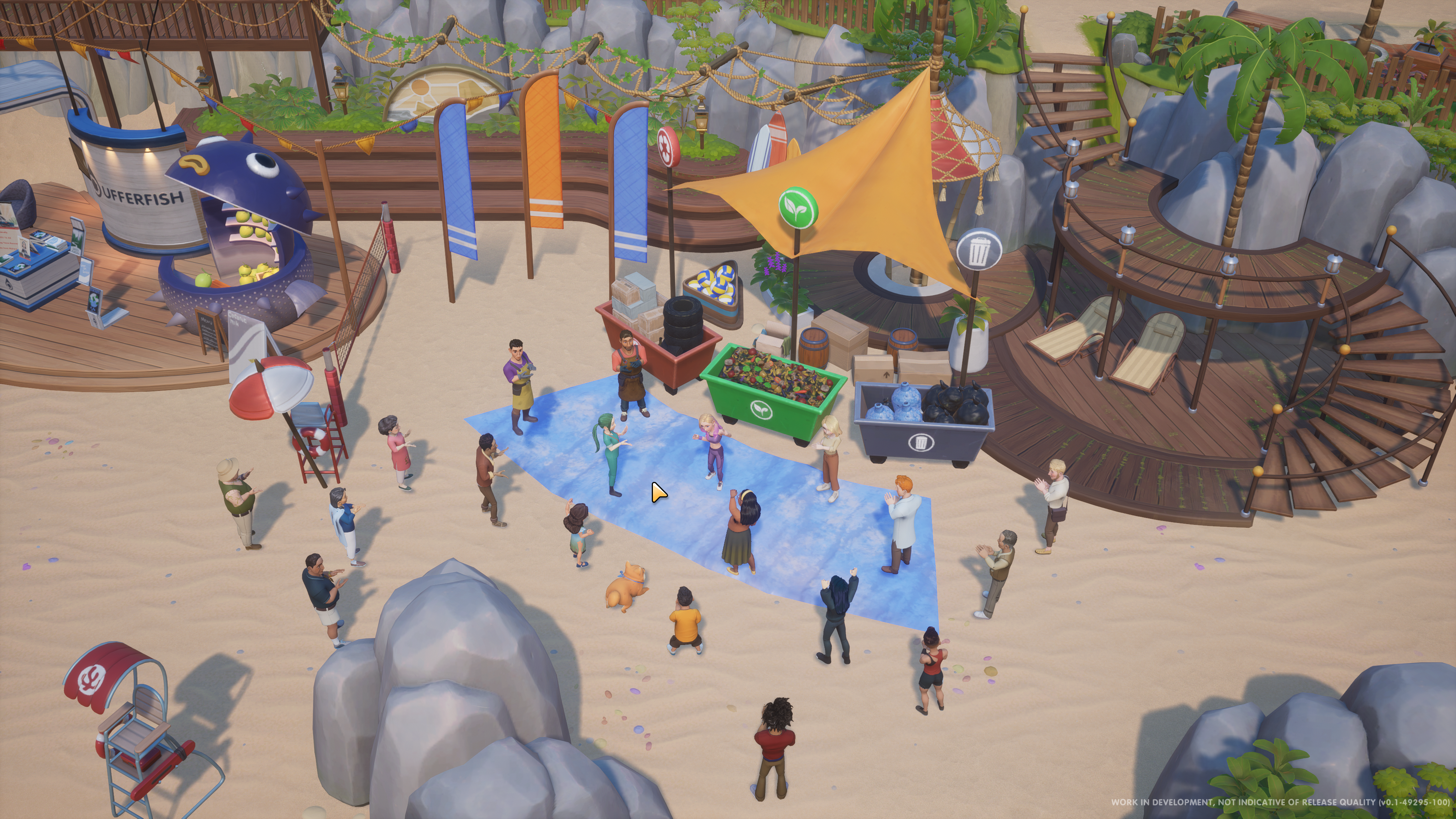
Cozy games have risen to prominence in recent years, from the revitalized hype for the Animal Crossing franchise following the release of New Horizons to the immense staying power of Stardew Valley.
The genre is growing, and not just in terms of its fans, and there are incredibly creative twists on the genre’s comfort-driven ethos such as Unpacking, Stray, and even games like PowerWash Simulator.
One particular sub-genre, farming simulation, forms a particularly large segment of the cozy game space, and in particular, Nintendo's recent showcases have been chock full of them.
However, it’s to the chagrin of many players - both in and out of the cozy community - that so many farming sims are set to release. Even I, a cozy aficionado, have been slightly overwhelmed, wondering how many ways you can be creative with crop harvesting.
That was until I picked up Coral Island, an early access title from Indonesian studio Stairway Games, which landed on Xbox Game Pass in late 2022. Already, it’s completely captured my heart and reminded me why there will always be space for a good, honest farm sim.
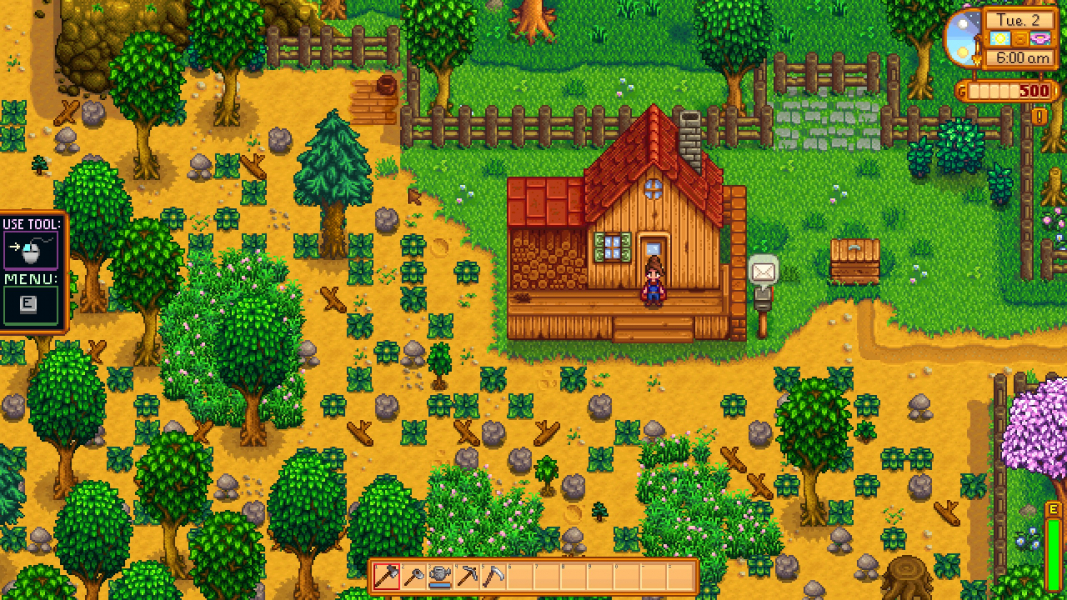
Back to my (crop) roots
Before we touch on Coral Island though, it’s important to know how we got here.
If you're a younger player (or didn’t grow up in the Nintendo ecosystem), you might not have even heard of Harvest Moon. Even if you have heard of it, it may only be by proxy of its relationship to Stardew Valley, in that creator Eric “ConcernedApe” Barone cited Harvest Moon as his biggest inspiration. In fact, Barone somewhat controversially based his early Stardew development work on a clone of Harvest Moon (source: PC Gamer).
Sign up for breaking news, reviews, opinion, top tech deals, and more.
Far more significant than this, however, is that many accredit Harvest Moon (1996) as the birth of both the cozy game genre and farming sims. While it, and many of its early contemporaries in that space had an element of risk (your farm animals could actually die, which would now be considered too intense for a cozy game) Harvest Moon showed the world that low-stakes gaming could be fun, too.
While I played other quasi-cozy games first, such as The Sims franchise, my true entry to the genre was Harvest Moon DS, which my friend traded with me for The Sims 2: Castaway in 2007 - a fateful move that started my lifelong love of cozy games. I spent hours scouring the internet’s sprawling Harvest Moon community and printing out pages on pages of guides, feverishly highlighting my favorite Bachelorette’s gift guide - I was well and truly hooked.
Over the years - and some would say many years before the release of Harvest Moon DS - the series’ staying power dwindled, and generally, farming sims became a little same-y. After all, there are only so many ways you can innovate farm management, right?
… Right?
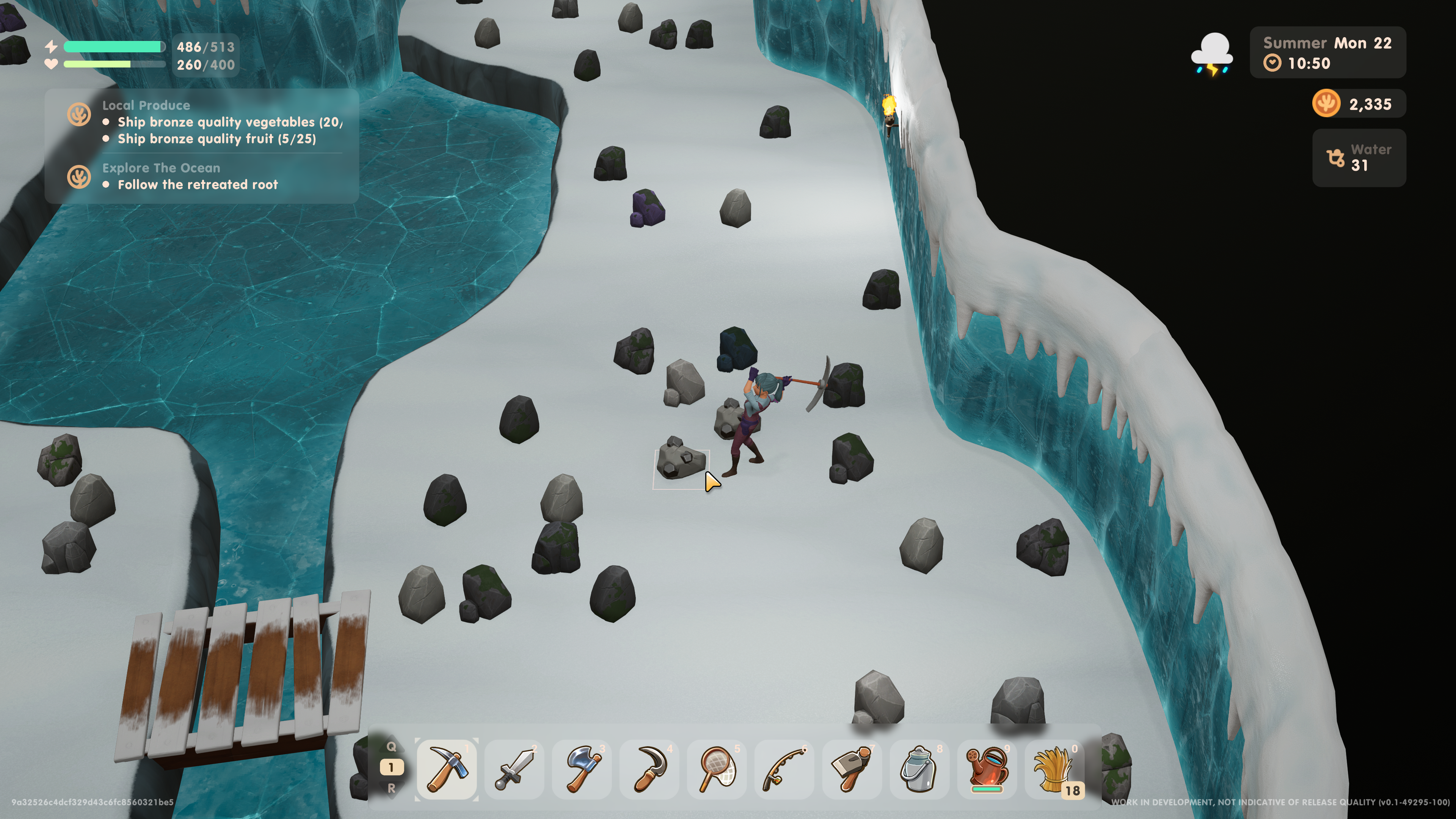
Cozy game renaissance
Cozy games certainly didn’t vanish after Harvest Moon, but they certainly became less frequent and creative in the 10-15 years after the series’ widespread success. Peripheral, kinda-cozy games like The Sims, other simulators, and even flash games filled the void of low-stakes gaming sufficiently.
Then, with Stardew Valley, an entirely new wave of attention came to the cozy genre, specifically farming simulators. Now, fans had multi-platform access and later even cooperative play, giving far more diverse crowd access to the Harvest Moon lookalike.
There’s little need to lament the well-documented success that Stardew Valley met, and soon everyone wanted a slice of the pie. A farming sim inspired by nostalgia and a passion for the genre became a cash cow that developers and gamers alike were more than ready to milk.
Yet something has been missing since Stardew, and it’s the same thing that Harvest Moon lost - and that some feel Animal Crossing and The Sims are losing too. Heart.
A farming sim inspired by nostalgia and a passion for the genre became a cash cow that developers and gamers alike were more than ready to milk.
As things commercialize, so, too, do they lose heart. Fiscal potential is the death of passion, which is why our Animal Crossing villagers aren’t as snarky and pithy as they used to be, our worlds lack lore and depth in The Sims 4 and our farming sims feel like hollow clones of a clone.
Coral Island, however, has sparked a real, genuine feeling in my cynical yet cozy-loving heart. Like many, I’d seen it circulating the crowdfunding circuit and, in all honesty, I’d written it off. Many of us have been burned before, and I saw little hope for something exciting in the farm sim community.
Give a little love
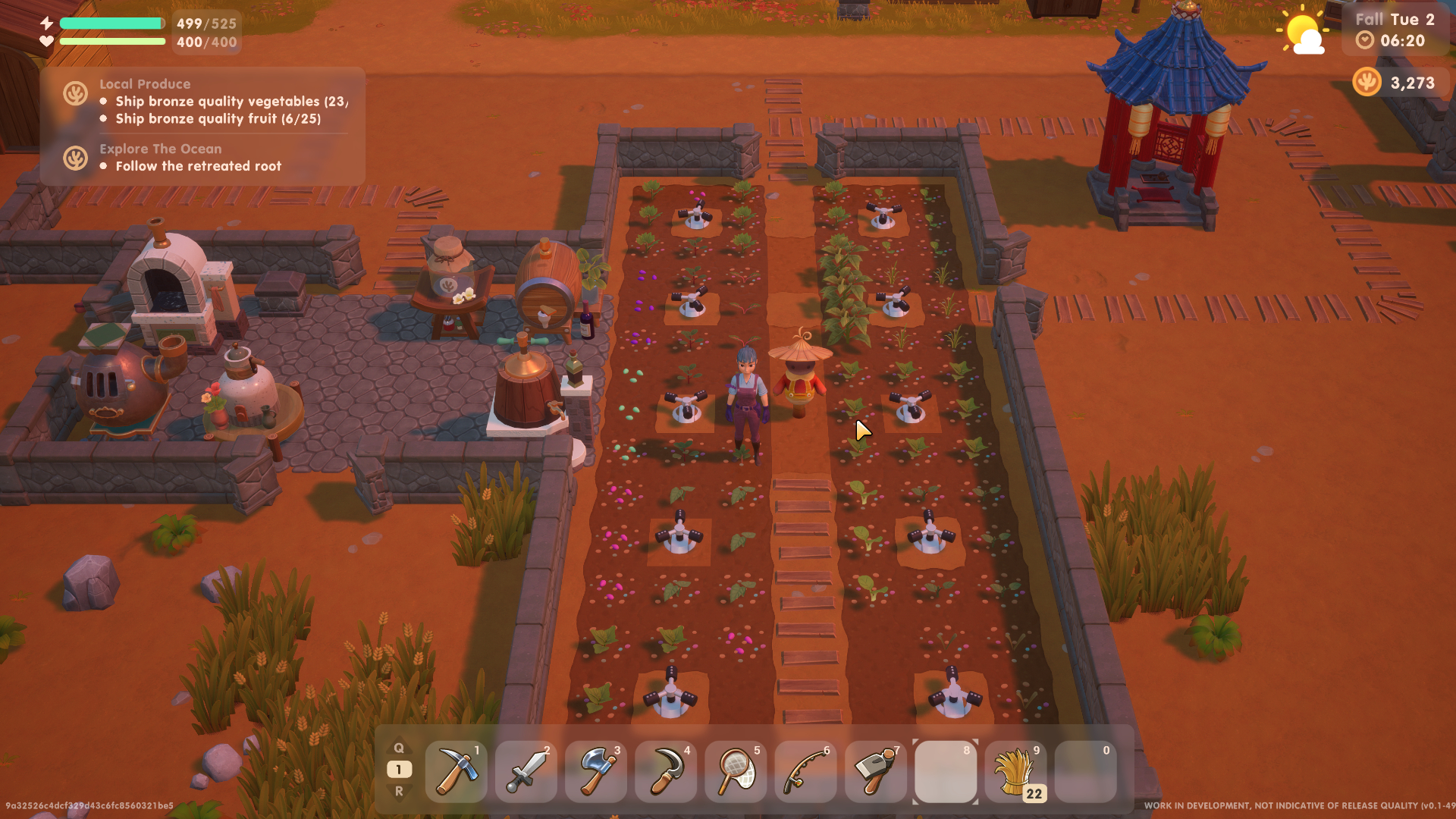
I was really pleased to see Coral Island arrive on Game Pass, meaning I had the opportunity to give it a try before I buy. 36 hours of gameplay later, I’ll hold my hands up; I’m hooked. It’s a problem.
On the surface, it’s a farming sim set on a tropical island - a different environment than we’re used to seeing, sure. Otherwise, it looks to be much of the same as we’d expect from a farming simulation; it has villagers you can grow relationships with, farming mechanics, mining, and a progressive narrative to repair your town.
There are some fantastic additions to its mix of gameplay and narrative, like a diving component, bug catching, and a more inviting museum donation system a la Animal Crossing, and the map is pretty huge. Realistically, though, it’s still pretty similar to everything else that’s out there in terms of mechanics.
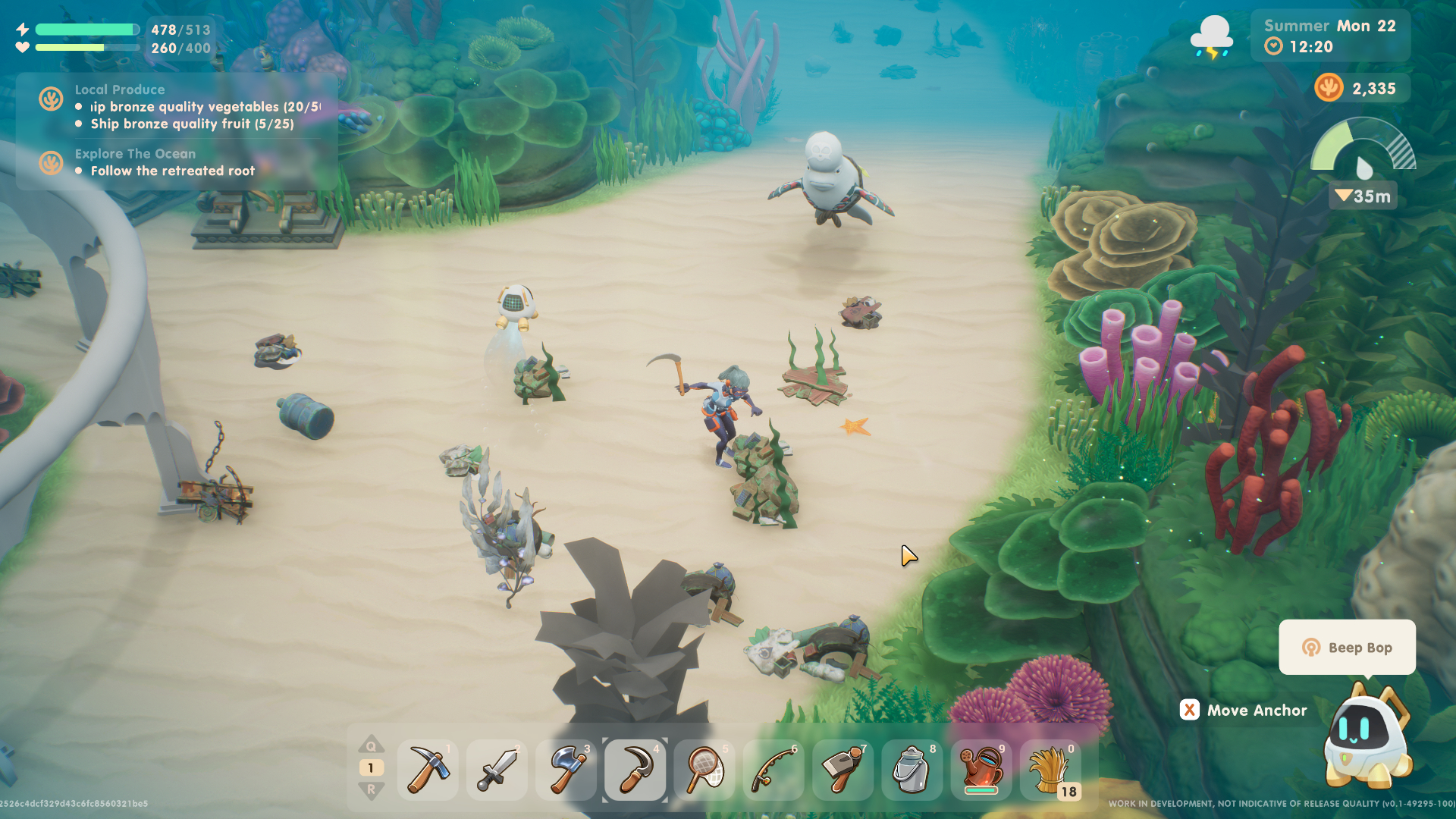
But the biggest difference between Coral Island and any other farming simulator I’ve played since Stardew Valley is exactly what I’ve been looking for; heart.
You can tell in every character illustration how much the team behind the game loves the project. The island is teeming with locals (over 70, as of writing, with Stairway Games intending to add more), all of which are diverse, expressive, and even with their currently limited storylines and engagements, packed full of personality.
My favorites are Suki, a divorced mother who runs the local inn and proudly displays her post-natal stretch marks, Randy, the local teacher who has a pretty rad prosthetic arm, and Dippa, a non-binary painter married to local food-truck owner, Emma.
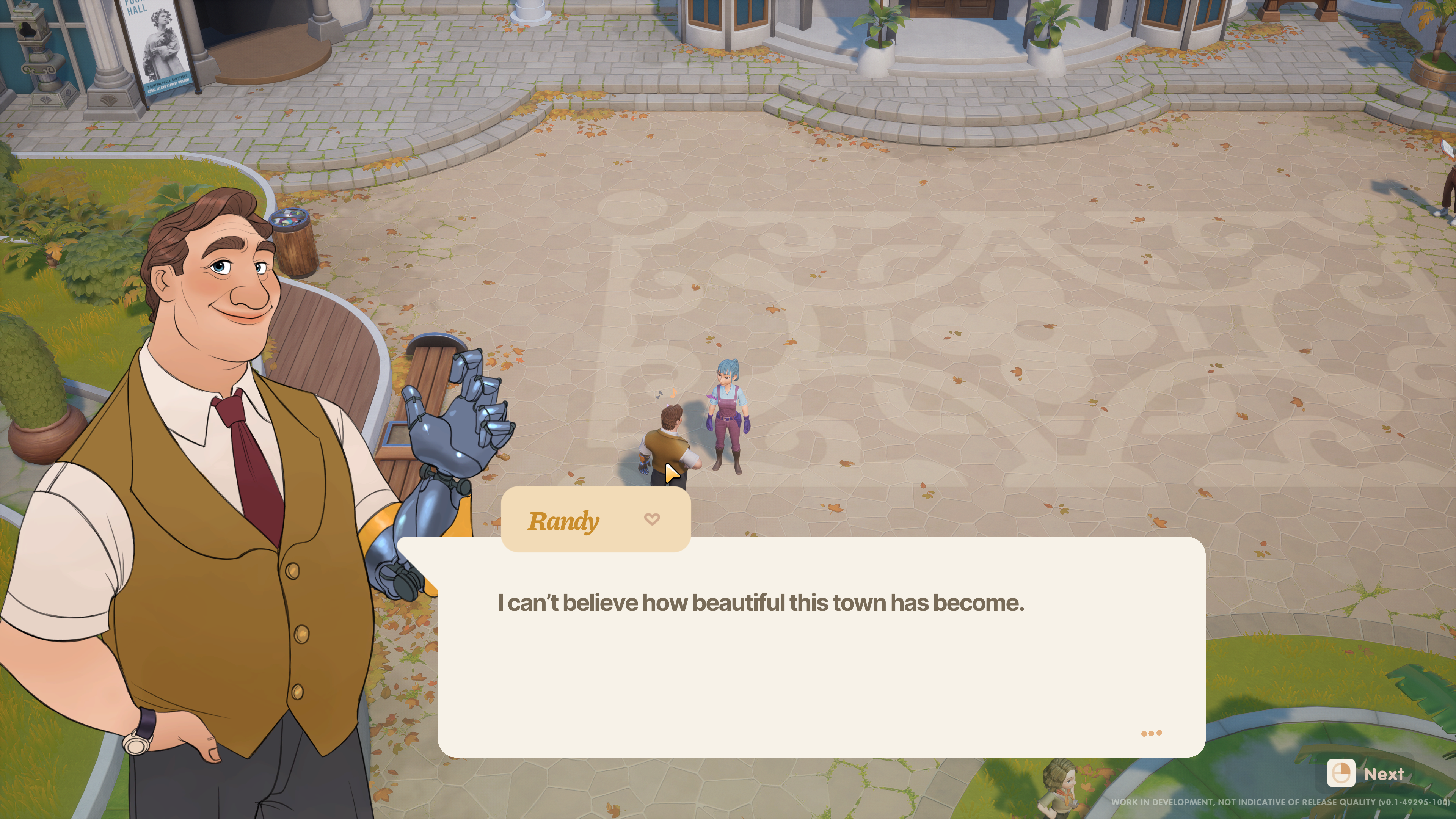
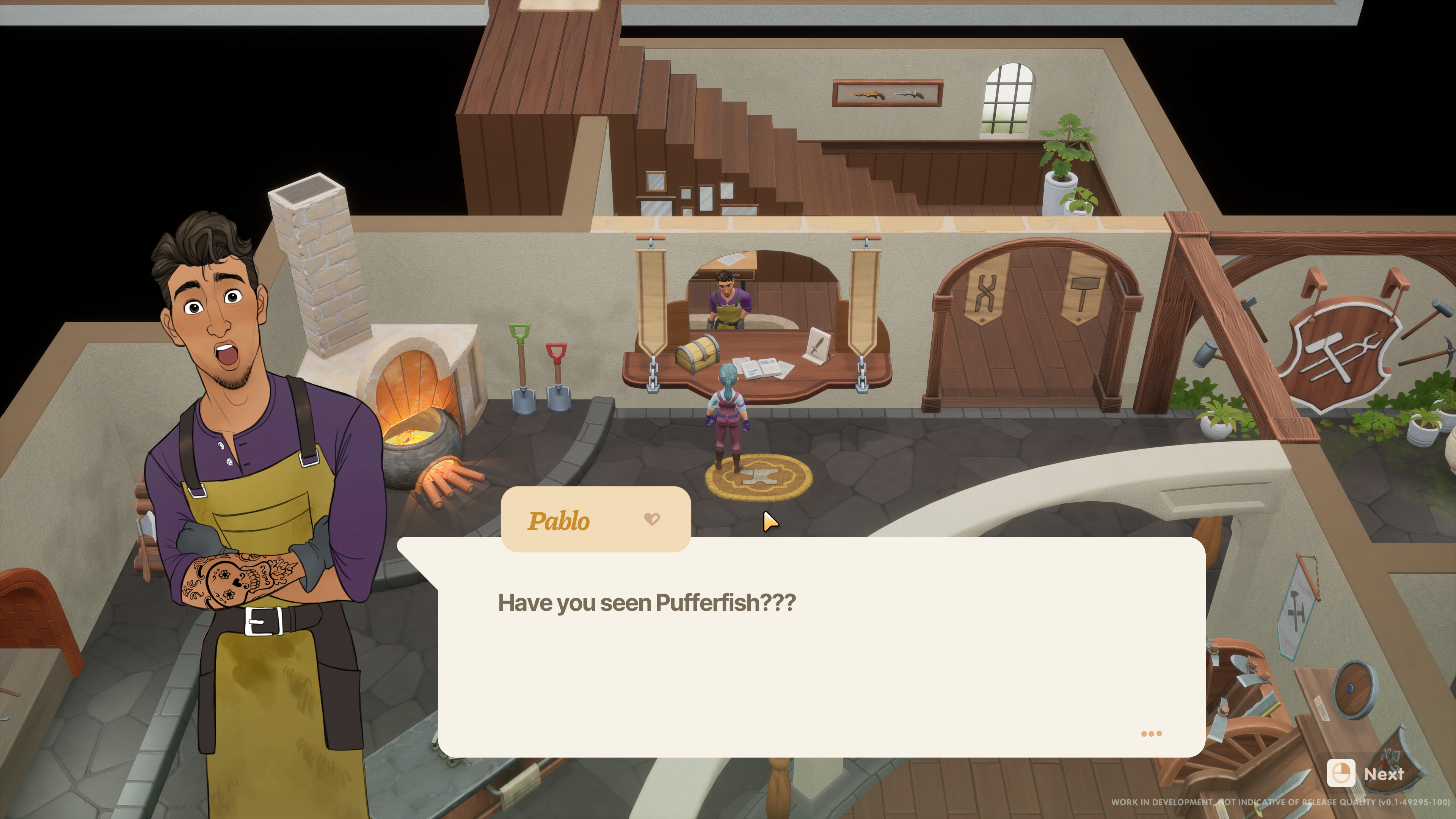
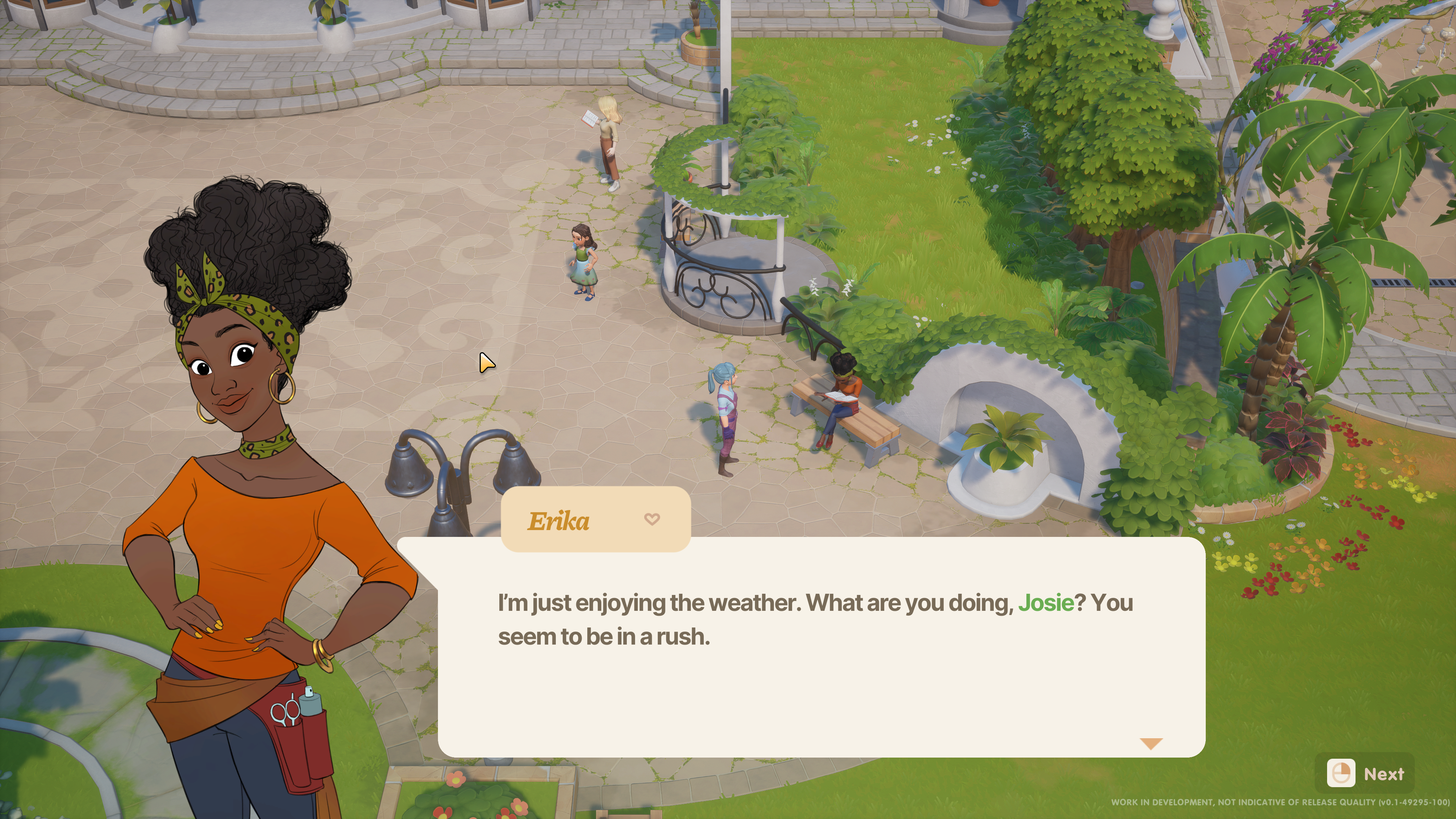
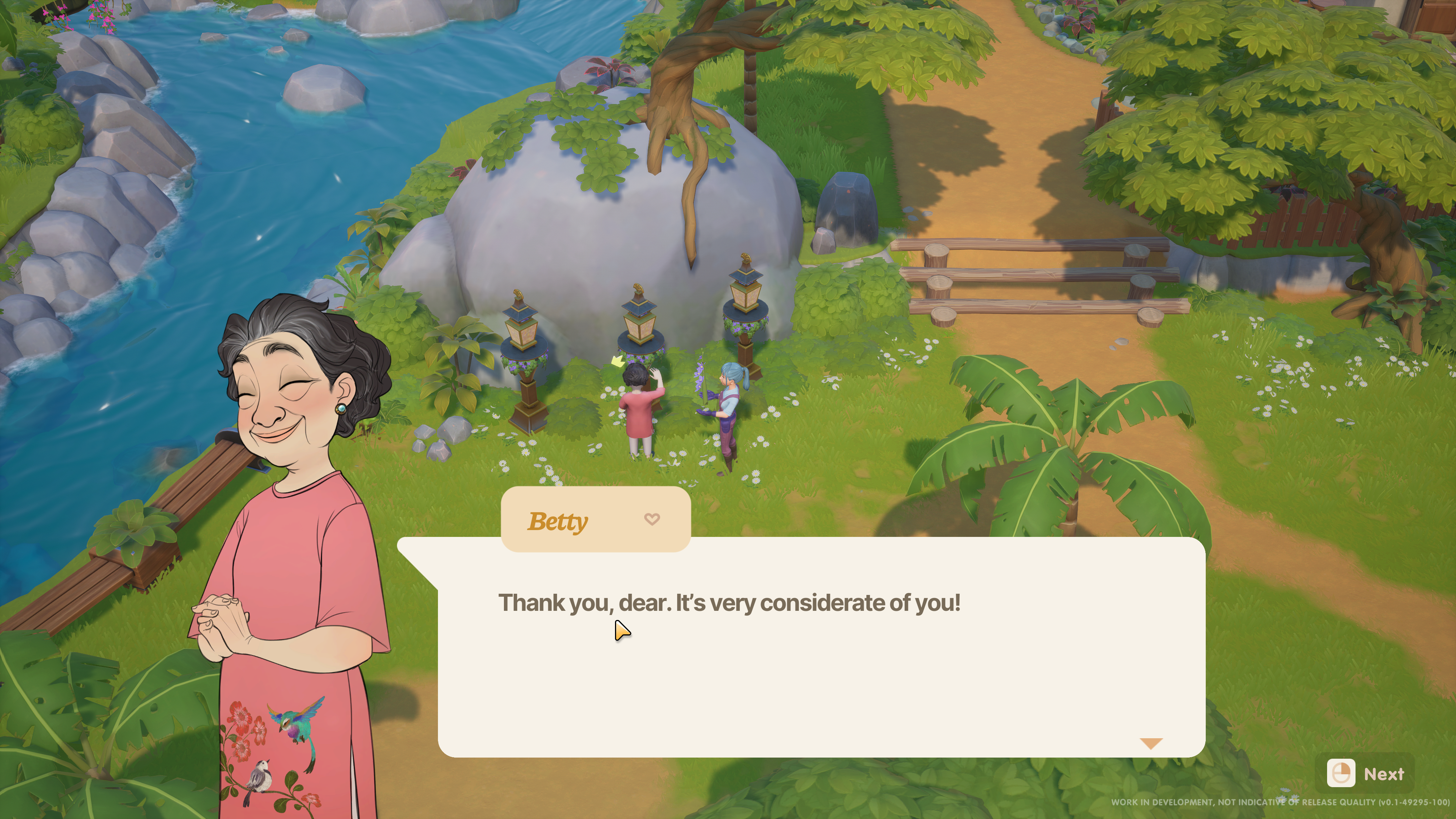
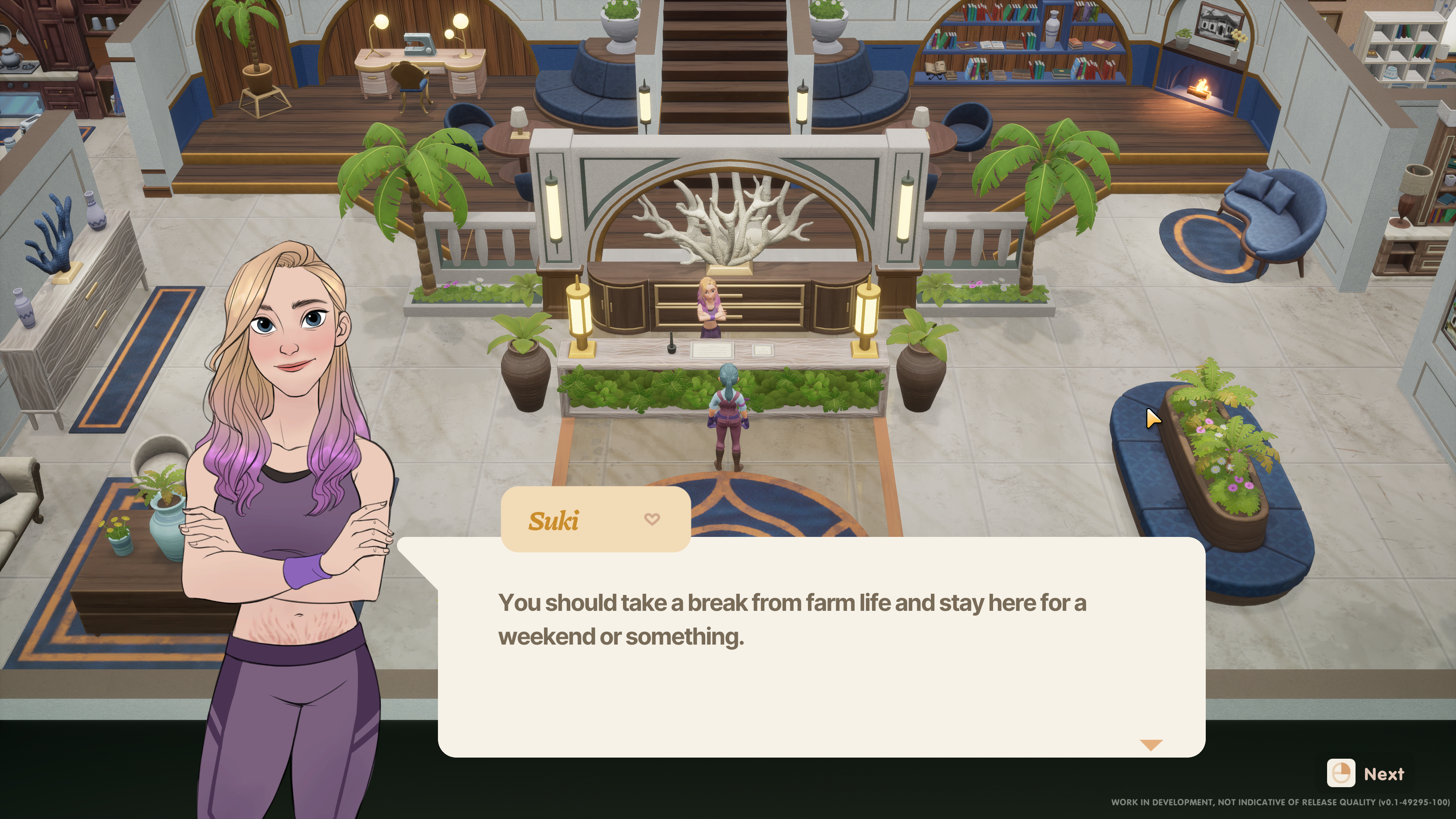
Where Stardew Valley labors on the loss of natural rural life with the arrival of the capitalistic villains at Joja, Coral Island makes a central point of its narrative the need for conservation, both of culture and nature, as inspired by South Asia’s own challenges with environmental issues.
The diving component and beach cleanup festival lean heavily on the need to clean up the island’s coral reef, the museum to conserve and research local wildlife, and the big bad, Pufferfish Drilling Corp is responsible for a nearby oil slick, with a view to expanding its drilling operations to Coral Island.
The biggest difference between Coral Island and any other farming simulator I’ve played since Stardew Valley is exactly what I’ve been looking for; heart.
And that’s just what’s in the game so far; developers have mapped out an exciting roadmap to take the game through to release, and there’s plenty more to come.
While some may still feel that Coral Island is a clone of a clone, what they’re actually decrying is the formulaic nature of farm sims. But it’s about as easy to innovate on farming as it is on most casual game genres, from tycoons to match-3 games, and I personally think people need to cut Coral Island and earnest farm sims like it a break.
Harvest Moon was genre-defining as a farming sim, and I feel like we can have the best of both worlds in appreciating its legacy and impact while enjoying the fruits of creative and inclusive teams like the one behind Coral Island as we look towards the future of farming sims.
In that, I can’t promise a better, more exciting future for farming simulators. I can’t even promise the future of Coral Island - it is still only fairly recently in early access after a lengthy crowdfunding process, with a tentative release date of Q4 2023. I am, however, thoroughly excited to be along for the ride, and finally feeling all the feels for farming sims once more.

Josephine Watson is TechRadar's Managing Editor - Lifestyle. Josephine is an award-winning journalist (PPA 30 under 30 2024), having previously written on a variety of topics, from pop culture to gaming and even the energy industry, joining TechRadar to support general site management. She is a smart home nerd, champion of TechRadar's sustainability efforts as well and an advocate for internet safety and education. She has used her position to fight for progressive approaches towards diversity and inclusion, mental health, and neurodiversity in corporate settings. Generally, you'll find her fiddling with her smart home setup, watching Disney movies, playing on her Switch, or rewatching the extended edition of Lord of the Rings... again.